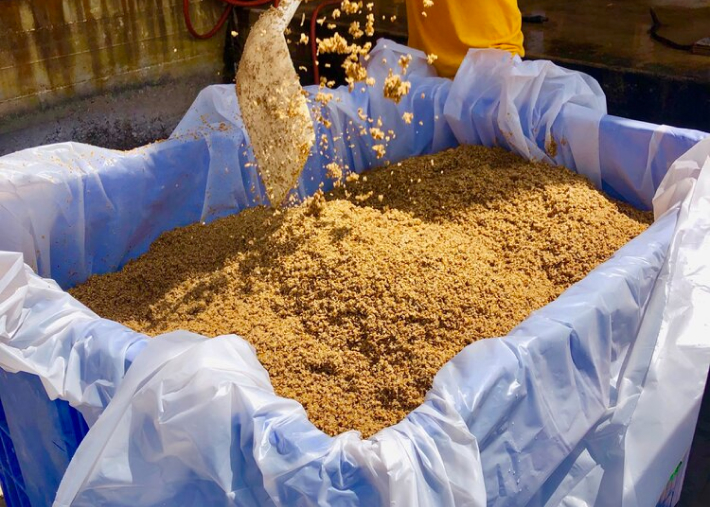866-99-RECYCLE
Food By-Product Waste Services
Food waste is a global issue that needs to be rapidly addressed. Currently, the world produces over 1 billion metric tons of food waste per year, and this figure doesn’t include food byproducts created during the production. The transformation of food byproducts into usable materials is one of the most powerful strategies to combat this issue and create a sustainable solution for both businesses and the environment.

Our tailored solutions are designed to help companies streamline the implementation of sustainable waste management practices throughout their supply chain.
What is a food by-product?
Food byproducts are secondary products generated during food manufacturing or production. These byproducts can often be used for alternative purposes or products, for example, whey produced in the processing of cheese.
Why food by-product recycling is important?
When you recycle food by-products, you prevent them from entering landfills, where they can contaminate the environment and contribute to global warming. Since landfills are one of the main sources of methane emissions in the United States, this is a crucial step towards reducing greenhouse gases and other pollutants.
Many by-products of the food industry contain reusable elements that can be recycled and reused, thereby saving businesses money. This decreases their costs and allows businesses to manufacture new products to sell to consumers who are interested in eco-friendly solutions.
Our food by-product solutions
Animal feed
Animal feed is the largest end use for food waste and byproducts generated by food manufacturers. We have developed a national network of direct and indirect end users for animal feed, which allows us to provide efficient service and delivery across the United States.
Bioenergy and biofuels
Bioenergy is a renewable energy source that uses biological materials, like food waste and animal manure, as feedstock instead of fossil fuels. This can be done through the use of anaerobic digestion. Anaerobic digestion is a process that uses microorganisms to break down organic matter in the absence of oxygen and results in biogas (methane) that can be used as fuel or heat. Biogas produced from anaerobic digestion can be used as a renewable substitute for natural gas or other fossil fuels.
Composting
Composting is a natural process that converts organic material into soil amendment. It’s the ideal way to reduce the amount of waste going to landfills and provides tremendous benefits, including reducing moisture loss, improving soil structure and aeration, protecting against erosion, and allowing you to use less water when watering plants or crops.
It’s important to note that this method only works for organic materials. Not all food by-products can be recycled through composting.
Fertilizers
Fertilizers are a great example of how recycling food by-products is a good alternative to landfilling. They can be derived from different sources, including organic matter like animal droppings and vegetable waste, or man-made compounds such as ammonium sulfate.
Recycling food and food by-products only reduces the amount of waste going into landfills but also provides an excellent source of nutrients for plants.
Contact us
Still Have questions?